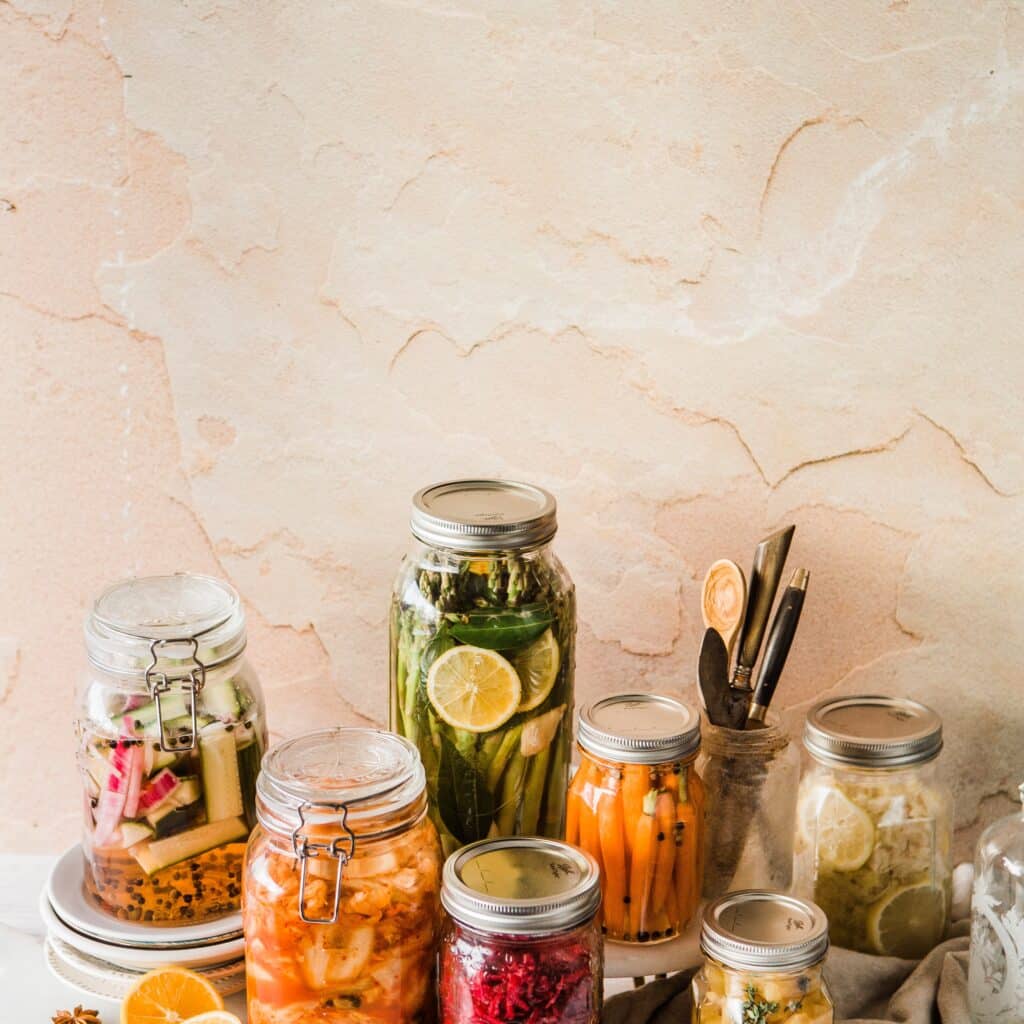As gut health has become a new health focus, you may be hearing the terms “pickled” and “fermented” alot lately.
What exactly are a pickled vs fermented foods? What’s the difference between them? Which foods fall into each category?
If these are questions of interest to you, keep reading on!
In this comprehensive blog post we will review the definition of these terms, highlight the differences between them, their health benefits and provide you with food choices for each group.
Let’s dive in!
Introduction
Pickling and fermenting are two popular methods of food preservation, which essentially helps foods last longer without refrigeration or freezing. While both processes give foods that characteristic sour flavor, they differ both in techniques used for preservation and their individual health benefits.
Let’s look at technique first.
Pickling
This method consists of preserving food through anaerobic fermentation done by immersing foods in an acidic liquid. The solution is usually made up of either brine (salt and water) or vinegar, with optional add-ins such as herbs, garlic and others.
Fermenting
This is another anaerobic process done in which food is submerged in water (usually with salt mixed in). As the mixture is left for a period of time, microorganisms break down sugar and starches into alcohol or acid. As the microorganisms produce more acid, the resulting liquid is acidic enough to prevent the growth of other microorganisms, thereby keeping the food from spoiling.
Health Benefits of Pickled vs Fermented Foods
While the goal of pickling and fermenting food is usually food preservation, there are great bonus health benefits that come along with it!
- Benefits of Both: The acid in both pickled and fermented foods can act as a digestive aid. If you’re looking to boost stomach acid, and thereby digestion, try adding these foods to your daily diet.
- Pickled: Most pickled foods are fruits and vegetables, so increasing these foods in your diet can help boost your overall fruit and veggie consumption. This is important for your body to help fight inflammation and to ensure you’re getting adequate micronutrients. Additionally, regularly eating pickled foods may help you curb sugar spikes, allowing you to better control blood sugar levels.
- Fermented: These foods are a great source of probiotics which can improve gut health. The beneficial microorganisms in fermented foods are associated with a variety of health benefits including increased immunity, improved digestion and it may even aid in weight loss.
Traditionally Pickled vs Fermented Foods
The following are examples of foods that are often pickled or fermented. Variety is the foundation of a healthy diet, so be adventurous and try some new foods!
Pickled
- Cucumbers
- Carrots
- Beets
- Onions
- Peppers
Fermented
- Cabbage- becomes kimchi or sauerkraut
- Milk- becomes yogurt or cheese
- Soybeans- becomes miso or tempeh
Summary
Pickled and fermented foods are more than just a tasty addition to your diet, they also provide some serious health benefits, whether you’re looking to improve your gut health or lose some extra pounds.
As a dietitian who focuses a lot on gut health, I am a big advocate of adding these foods in daily!
If you’re interested in pickling your own foods, you can find a fabulous recipe for “No Sugar Pickled Beets” on my blog.
Remember, happy gut, happier you!
